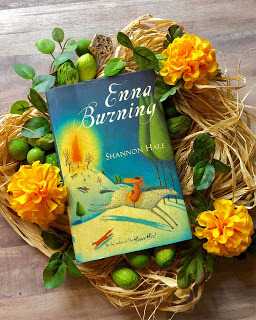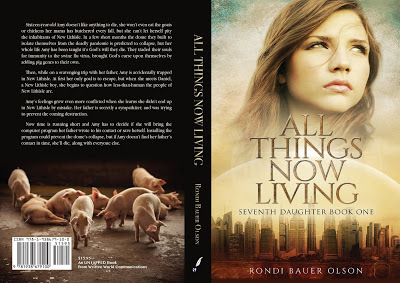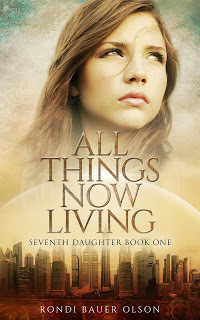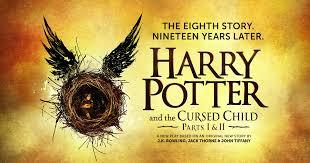Rondi Bauer Olson's Blog
June 27, 2019
Writing or Not?

I've read a number of blogs that talk about how simply writing makes you a writer. You don't have to have an agent, or be published. Sitting down with your laptop and tapping away is the only qualifier. Or scribbling away with your pen and paper. Words on paper, digital or analog.
So what happens when you stop writing?
For me, the main problem has been my health. Long periods of illness left me behind on work and chores at home. My normal time to write got pushed aside.
This not-writing business has left me feeling like a writer, past-tense, but today, I am going to change that. My health issues have been dealt with. Starting today, I am going to once more make writing a priority.
I write, therefore I am a writer.
Are you?
Published on June 27, 2019 05:44
May 3, 2019
The (Literally) Printed Word is a Beautiful Thing
 Photo by my awesome social media manager Becca Anthony. Ask me about her if you're looking for social media help!I take pride in being a techie geek. I have set up business networks, and enjoyed it! So I always felt a little smug satisfaction in the fact I had very few physical books. Lots of ebooks, and lots of audiobooks, but only a few shelves of real paper and ink.
Photo by my awesome social media manager Becca Anthony. Ask me about her if you're looking for social media help!I take pride in being a techie geek. I have set up business networks, and enjoyed it! So I always felt a little smug satisfaction in the fact I had very few physical books. Lots of ebooks, and lots of audiobooks, but only a few shelves of real paper and ink.Then I set about to improve my Instagram account. Sure, I could have posted all ebook covers, but I thought I should buy a few of my very favorite books in hardback. Not only would they look great in photographs, I would be able to read just my favorite parts over again, something very difficult to do in digital format.
Little did I know what I was missing. How exquisitely beautiful these books have been! I have learned there is so much more to book design then the front picture, from the quality of the paper, to the design of the cover under the dust jacket, to the font, and how it feels under my finger tips. Wow!
Looks like I am going to have to buy some more bookshelves!
Published on May 03, 2019 13:40
October 28, 2017
(Don't) Preach It

Dear General Market Author:
You've complained about us Christian fiction writers for years, and honestly, you were right. Our pet talking points were elevated above story, which lead to some pretty bad books. Sometimes hilariously bad, with two-dimensional villains, Mary-Sue protagonists, and plots so predictable finishing the book was pretty much optional.
Our bad. We've been trying to do better, adding nuance and realism,and most of all, letting any moral come out naturally through a great story, instead of hoping (praying?) it would work the other way around.
Here's the thing, though. This whole not-preaching goes both ways. Sacrificing story at the alter of any belief system, no matter how fantastic or fervently held, still ends up just being a bad story.
So stop. Please.
You're hurting all of us.
Published on October 28, 2017 12:54
October 4, 2017
Showing Versus Telling - Three Steps to Getting it Right
 Instead of TellingOne thing almost every new writer hears is to "show not tell." Okay, great. but what does that mean? I thought I was showing.
Instead of TellingOne thing almost every new writer hears is to "show not tell." Okay, great. but what does that mean? I thought I was showing.Apparently not.
I didn't understand showing versus telling until I attended a writer's conference with my son. At 17, he was hesitant to wander a strange campus on his own, so instead of attending my "real writer" sessions, I went to his screen writing sessions. It was one of the best inconveniences of my life, because I finally realized what had been missing in my writing.
Movies show. They have to. When a character is sad, a voice doesn't boom, "The news saddened John." No, John hears the news, and his behavior changes. His shoulders slump. His gait shuffles. Tears well in his eyes.
So, in three easy steps, here is how to show, not tell:
1. Pretend you are a movie director and your characters are actors. How would you get an audience to know what your character is thinking or feeling? What would you tell and actor to do? Write your character doing those things.
2. Tell to speed up the story, when showing isn't necessary, or to let your readers know something isn't very important.
3. Show and tell when you want to emphasize a point.
My favorite reference book for showing emotion is The Emotion Thesaurus: A Writer's Guide To Character Expression[image error] Of course we want to show more than emotion, but it's a good start.
How do you show and not tell?
Published on October 04, 2017 05:50
September 4, 2017
Characterization - Three Steps to Getting it Right
 Know your characters, inside and out! Okay, maybe not this well. :)
Know your characters, inside and out! Okay, maybe not this well. :)As writers, we all want characters that jump off the page and into our reader's hearts, but making our characters come to life isn't easy. All too often, characters come across as paper-thin and two dimensional. When a character doesn't have depth, it's difficult to relate to them, or to care about what happens to them.
The answer to creating well-rounded characters is to know them, inside and out, but how do we do this? Here's three ways:
1. Complete a character chart for each character. If you're having a difficult time figuring out your character, filling out a character chart is a good way to get to know them and their background. This knowledge will not only influence how your write your character in each scene, it will keep their behavior consistent, so they don't act "out of character" and throw your reader off.
2. Imagine the story being told from each character's point of view. What are their motivations? Why are they doing what they are? If you take a minute to imagine each character the hero of their own story, you will bring meaning to their actions.
3. Write difficult scenes from various characters points of view. If a scene doesn't feel right, or if you just want to understand each character's behavior in each scene, writing the scene from their perspective will help you refine their dialogue and actions, making them more realistic.
Flat characters can ruin the best of stories. Developing characters takes time, but well-rounded characters keep readers invested more than any other part of writing.
Published on September 04, 2017 07:38
June 5, 2017
Tackling That To-Be-Read Pile
 Three weeks ago, my debut novel, ALL THINGS NOW LIVING, released. It's been an exciting time, and I've been satisfied with the attention and sales my book has been receiving. One thing that hasn't been easy, however, is getting reviews, and because they are so vital to sales, it is a must-do.
Three weeks ago, my debut novel, ALL THINGS NOW LIVING, released. It's been an exciting time, and I've been satisfied with the attention and sales my book has been receiving. One thing that hasn't been easy, however, is getting reviews, and because they are so vital to sales, it is a must-do.Which leads to me my to-read pile. I have dozens of books piled around my house and loaded on my Kindle that I want to read, but haven't gotten around to yet. As a recently published author I am looking at those piles with fresh eyes. Somewhere out there a new author is anxiously waiting for me to finish her book so I'll post a review. Or she used to wait. I'm sure by this time she's given up. Some of the books I bought new are now completed series, and though I own all the books that followed the first, I've yet to dive into any of them.
I decided last week to be kind to myself and other authors. I love reading, and authors love reviews. Win-win, right? So I made a plan to read more:
1. Read more than one book at a time. I know, a lot of other people do this all the time, but it has always driven me crazy. I wouldn't watch 45 minutes of a movie then stop, watch something else, and finish the movie later. But if I was going to read more, I was going to have to read more than one book at once. For me this meant one audio book, one digital book, and one paper book going at the same time. So far, it's actually worked out really well.
2. Read what you can, when you can. I typically don't read books, I devour them. I've never been a one-chapter-a-night person. It's all or nothing, but I've decided on no more nothing. This is still quite frustrating. I don't enjoy pesky interruptions like having to go to work, but I have read more.
3. Read with my husband. My husband isn't a big reader, so usually for relaxation we watch a movie in the evening. It's our social time together, and I enjoy watching movies, but every night is a little much. It's valuable time I could spend reading!I've talked my husband into giving a few books a try, and while our social time is quieter on those nights, it's been really fun.
How big is your to-read pile? How do you get around to reading
Published on June 05, 2017 04:38
May 14, 2017
What Exactly is Christian Fiction?

My book, coming out May 15, 2017 is being published by Written World Communications, a Christian publisher. This has lead to a number of people asking me if ALL THINGS NOW LIVING is a Christian book.To be honest, I don't have a simple yes or no answer. What is considered Christian varies from person to person, but I'd say in recent years two types of Christian literature have emerged:
Overtly Christian
In these books, the main character is usually a Christian. If not, they will undoubtedly become one before the story is finished. Bible verses are liberally sprinkled throughout the text, and prayer is an essential element. Often there is what I like to call a "Come to Jesus" moment.
Written from a Christian World View
These books may have no mention of God or Jesus at all. Words like "clean", "sweet", and "cozy" are often used as descriptors. They typically offer a positive message while avoiding graphic depictions of ideas, concepts, or behaviors Christians may find offensive.
So, which is ALL THINGS NOW LIVING? I would have to say it falls into the second category, as there is no mention of Jesus, no conversion, no bible verses, and limited prayer, but ALL THINGS NOW LIVING is a spiritual coming-of-age story. This make it heavier on religious content than many of the "Written from a Christian World View" books I've read.
What do you consider a Christian book? Do you regularly read Christian literature, or is it something you avoid? How do you feel about "Christian" books that lack overtly Christian content?
Published on May 14, 2017 05:34
April 4, 2017
So, Are You Writing a Trilogy?
 Book OneProbably the most frequent question I get asked when people hear I have a YA book coming out is if I am writing a trilogy. I understand why, my first book clearly indicates it is Book One, and there have been a lot of trilogies released in the last few years. But no, I am not writing a trilogy. Here's why:
Book OneProbably the most frequent question I get asked when people hear I have a YA book coming out is if I am writing a trilogy. I understand why, my first book clearly indicates it is Book One, and there have been a lot of trilogies released in the last few years. But no, I am not writing a trilogy. Here's why:Story should determine itself, not how many books you want in your series. My series will actually have four books, because that is how many are needed to serve the story. Not the other way around.
Each book should be able to stand on it's own. I've read a number of very frustrating "trilogies" that were, in fact, only one story broken up into three parts, beginning, middle, and end. In other words, there was no conclusion at the end of the first book, or the second. Too bad for you if you didn't want to read all of them, or if you had to wait years between the release of each volume. While there is an overarching plot that is threaded through all four of my manuscripts, I have worked very hard to have distinct plots for each, and I hope readers will find them satisfying in themselves.
If you are writing a book, don't feel pressured to come up with a certain number of books. Sometimes the story is best told in one. Other times many more are needed. Do what works best for you and the story you are telling.
Published on April 04, 2017 02:04
January 9, 2017
That Time of Year - Picking Writer's Conferences
 Time to plan the year!Every January I look over my calendar to decide which writer's conferences to attend. I wish I could go to a lot more than I do, but, like most of us, I don't have unlimited funds or time.
Time to plan the year!Every January I look over my calendar to decide which writer's conferences to attend. I wish I could go to a lot more than I do, but, like most of us, I don't have unlimited funds or time.The first conference that gets circled on my calendar is my local writer's group annual conference. Not only is it the least expensive, it is close by and only lasts one day. While it's focus is on self-published authors, I have learned more about marketing from this group than any other. Definitely worth it!
The next conference I chose is regional. Not as expensive as national conferences, these conferences still often attract top speakers, editors, and agents. Because they are smaller than national conferences, there is often a better chance to meet the speakers as well as to get to know other authors.
National conferences are the most expensive, not only in fees but travel and accommodation costs. I don't go to a national conference every year. Although they are a lot of fun, they really don't offer more opportunities than the regional conferences, and sometimes less. This is why, many years, I will attend two regional conferences instead of going to a national conference.
Not only has attending writer's conferences improved my writing, I would say having the chance to interact with other writers and learn from the best authors, editors, and agents has kept me writing.
Will you be attending a writer's conference this year? Which ones would you recommend?
Published on January 09, 2017 03:07
August 9, 2016
Harry Potter and the Cursed Writer
 A small look into the brilliant mind of JK Rowling.Harry Potter and the Cursed Child is the best selling book of 2016. Some love it, others feel betrayed, but what does it say about writers?
A small look into the brilliant mind of JK Rowling.Harry Potter and the Cursed Child is the best selling book of 2016. Some love it, others feel betrayed, but what does it say about writers?(Warning: Mild spoilers ahead! Stop reading if you don't want to know anything.)
Okay, the Harry Potter and the Cursed Child plot revolves around a time-turner, the creation of alternate universes, and things happening to characters we love that differ from the timeline in the first seven books.
You may not know this, but every author has a time-turner. As we write, there are thousands of different directions we can take our stories. When we delete, we change our fictional character's lives. I have written three very different "first drafts" for the second book in my series. I mourn story lines and characters I had to leave behind. Hopefully readers will never discover what "could" have been, but I will never forget. For me, all of my stories feel like they are full of alternate universes, things that once happened, but are now gone forever.
Now, I don't know how much of Harry Potter and the Cursed Child came from ideas that were once part of the original series and were rejected for one reason or another. Maybe none of it. But it is a clever look into the writing process and the emotional turmoil most of us authors go through.
Published on August 09, 2016 03:26



